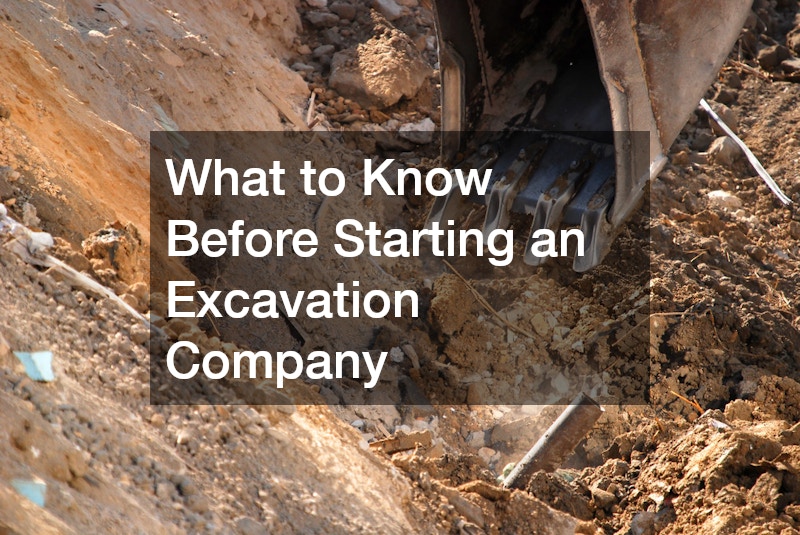Before diving into the business of local excavating contractors, it is crucial to have a comprehensive understanding of the industry. Excavation is an integral part of construction, involving the removal and transfer of earth, rock, and other materials to shape the landscape. This industry caters to diverse projects ranging from residential and commercial construction to infrastructure developments.
Understanding the diverse needs and technical requirements of these various projects is pivotal. The demand for excavation services often peaks with economic growth, which fuels construction activities, and being up-to-date with market trends is essential for success.
The role of an excavation company is not limited to moving dirt from one place to another but encompasses a variety of services. These services can include site preparation, environmental restoration, trenching, and grading. Over time, many excavation businesses have expanded their services to include demolition and clearing land from obstructions. Therefore, it’s important to determine what services your company will offer and assess the demand in your local area. Additionally, specialization can give your company an edge in a competitive market by offering unique solutions tailored to specific needs.
Local excavating contractors are often influenced by regional regulations and standards, such as permits, safety protocols, and environmental considerations. Being well-versed in these regulations is not only necessary for compliant operations but also helps to build client trust. It’s vital to establish a good rapport with regulatory bodies and communities, as they can greatly influence the smooth operation of your business. Equipping yourself with the right knowledge and the ability to adapt to changes in these regulations is also key. This knowledge ensures that your company remains competitive and maintains a good reputation within the industry.
Planning and Investments
Launching an excavation company requires significant financial investment in purchasing and maintaining equipment. The cost of acquiring machines such as bulldozers, backhoes, and loaders can be substantial. Therefore, it is crucial to conduct a thorough cost analysis and project the financial outlook for your business. An understanding of how to depreciate these assets and manage operational costs will also play a crucial role in maintaining profitability. As equipment technology advances, investing in modern machinery can improve efficiency, although this demands a strategic balance between cost and benefit.
Another critical aspect of planning is identifying your business model and market niche. Will your company provide services for residential projects, commercial developments, or public works? Each niche offers distinct opportunities and challenges — residential projects may offer higher volume but lower margins, while public works can require navigating complex bid processes. Determining your target market early can direct your marketing strategies and help tailor your service offerings effectively. Research competitors to understand your market position and strategize accordingly for a competitive edge.
Consideration of your workforce and management structure is essential for operational success. Hiring qualified operators and experienced management staff can significantly influence your company’s efficiency and reputation. Training programs should be developed to ensure that your team remains proficient with the latest techniques and safety practices. Employee safety is paramount in the excavation industry, where the potential for hazardous conditions is higher compared to other sectors. Offering competitive wages and a safe working environment can attract skilled personnel and reduce turnover, fostering a stable workforce for your company’s growth.
Overcoming Challenges
Local excavating contractors face several challenges, such as fluctuating economic conditions that affect project availability and pricing pressures. One way to mitigate these challenges is by establishing strong relationships with clients and suppliers to ensure a stable flow of work and resources. Developing a reputation for reliability and timeliness can also protect against market volatility. Offering flexible service packages that adapt to different budgets and needs can improve accessibility to a broader client base. Such strategies can help create a sustainable business model resilient to economic and industry fluctuations.
Another challenge is the management of health, safety, and environmental risks, which can have significant financial and legal impacts. Ensuring adherence to safety standards minimizes the risk of accidents, which can lead to serious injuries or even fatalities. Implementing rigorous training programs and maintaining a culture of safety helps to protect not only the workforce but also your business’s financial well-being. Environmental considerations, such as minimizing the ecological footprint of projects, should be prioritized in planning and operations. These practices are not only ethically sound but also enhance your company’s reputation and appeal to conscientious clients.
Technological advancements in the excavation industry provide both opportunities and challenges. Staying updated with the latest technology, such as GPS-guided machinery and drone surveying, can improve precision and efficiency. However, integrating these technologies into existing operations requires investment in both new equipment and training. The initial costs can be daunting, but they often lead to long-term savings and competitive advantages. Balancing these technological investments with traditional methods can create adaptive solutions that cater to a wide array of client needs.
Starting an excavation company involves careful planning, substantial investment, and the ability to navigate a dynamic industry landscape. A thorough understanding of the industry and its regulatory environment is critical. Strategic planning regarding market positioning, financial management, and workforce development can set the foundation for a successful business. By addressing challenges proactively with robust risk management practices, a company can remain resilient in the face of fluctuations and capitalise on industry advancements. With dedication and strategic foresight, the excavation business can be both profitable and rewarding.


